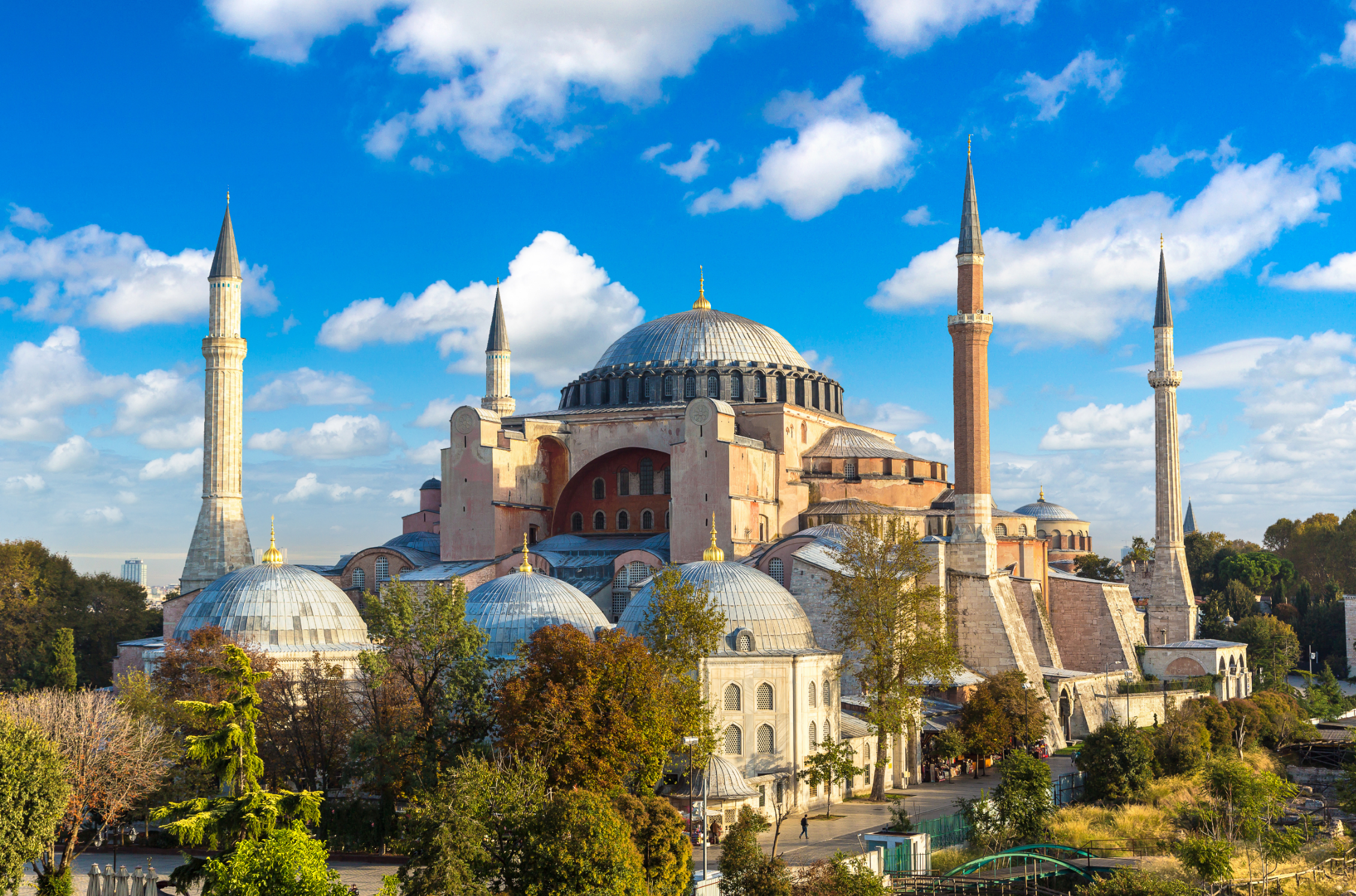
Citizens often send messages to the President of the European Parliament (or to the institution’s public portal) expressing their views on current issues and/or requesting action from the Parliament. The Citizens’ Enquiries Unit (AskEP) within the European Parliamentary Research Service (EPRS) looks into these issues and replies to the messages, which may sometimes be identical as part of wider public campaigns.
The President of the European Parliament has recently received a large number of messages condemning the conversion of the Hagia Sophia in Istanbul from a museum into a mosque. Citizens first began to write to the President on this subject in August 2020.
In their messages, citizens called for a halt to accession negotiations between the European Union and Turkey, or for sanctions against the country.
As early as 2019, the European Parliament opposed plans to convert Hagia Sophia into a mosque. Furthermore, the European Parliament has repeatedly called for accession negotiations with Turkey to be suspended as a result of other matters related in particular to the situation of democracy and the rule of law in Turkey.
Please find below the main points of the reply sent to citizens who took the time to write to the President of the European Parliament on this matter (in German).
Main points made in the reply in English
At an early stage, the European Parliament opposed alterations to the physiognomy of the Hagia Sophia historical-religious monument and its conversion into a mosque in a resolution of March 2019 (point 14).
At a press conference on 13 July 2020 held after the meeting of the Foreign Affairs Council, EU Foreign Affairs Representative Josep Borrell said:
’There was broad support to call on the Turkish authorities to urgently reconsider and reverse this decision.’
In recent years, the European Parliament has repeatedly called on the European Commission and the EU Member States to suspend accession negotiations with Turkey, most recently in its Resolution of March 2019 (point 21).
Members of the European Parliament raised a number of parliamentary questions concerning the reactions of the European Commission to the transformation of Hagia Sophia into a mosque, particularly regarding relations with Turkey and the accession negotiation between the European Union and Turkey. These are registered under the following numbers: E‑004170/2020; P‑003705/2020; P‑004264/2020. Once received, the European Commission’s replies will be published in the same place.
Further background information can be found in the European Parliamentary Research Service analysis entitled Hagia Sophia: Turkey’s secularism under threat.
Extensive information on EU-Turkey relations and the state of play of the accession process can be found on the relevant websites of the European Commission and the European External Action Service.
Main points made in the reply in German
Das Europäische Parlament hat bereits frühzeitig in einer Entschließung vom März 2019 Veränderungen am äußeren Erscheinungsbild des historisch-religiösen Monuments Hagia Sophia und ihrer Umwandlung in eine Moschee widersprochen (Punkt 14 der Entschließung).
Der Außenbeauftragte der EU, Herr Josep Borrell, erklärte in einer Pressekonferenz am 13. Juli 2020 zu den entsprechenden Ergebnissen der Sitzung der EU-Außenminister u.a.:
„Es gab eine breite Unterstützung dafür, die türkischen Behörden aufzufordern, diese Entscheidung nochmals dringlich zu überdenken und rückgängig zu machen.“
Das Europäische Parlament hat die Europäische Kommission und die Mitgliedstaaten der EU in den letzten Jahren wiederholt aufgefordert, die Beitrittsverhandlungen mit der Türkei auszusetzen, zuletzt in seiner Entschließung vom März 2019 (Punkt 21).
Zu den Reaktionen der Europäischen Kommission auf die Umwandlung der Hagia Sophia in eine Moschee, insbesondere hinsichtlich der Beziehungen zur Türkei und den Beitrittsverhandlungen zwischen der Europäischen Union und der Türkei, wurden von Mitgliedern des Europäischen Parlaments eine Reihe von parlamentarischen Anfragen gestellt.
Diese sind z.B. unter folgenden Nummern registriert: E‑004170/2020; P‑003705/2020; P‑004264/2020. Die Antworten der Europäischen Kommission werden nach deren Eingang dort veröffentlicht.
Weitere Hintergrundinformationen sind (in englischer Sprache) in der Ausarbeitung des Wissenschaftlichen Dienstes des Europäischen Parlaments Hagia Sophia: Turkey’s secularism under threat erhältlich.
Umfangreiche Informationen über die Beziehungen zwischen der EU und der Türkei und zum Stand des Beitrittsprozesses können den einschlägigen Internetseiten der Europäischen Kommission und des Europäischen Auswärtigen Dienstes entnommen werden.








[…] Source Article from https://epthinktank.eu/2020/09/01/citizens-enquiries-on-the-conversion-of-the-hagia-sophia-in-istanb… […]
What an insult to the Greek and Cypriot EU citizens that you write about the suspesion of succession talks within the context of the mosque and not because of the threats of war Turkey has been making while the EU did absolutely nothing for the most part.